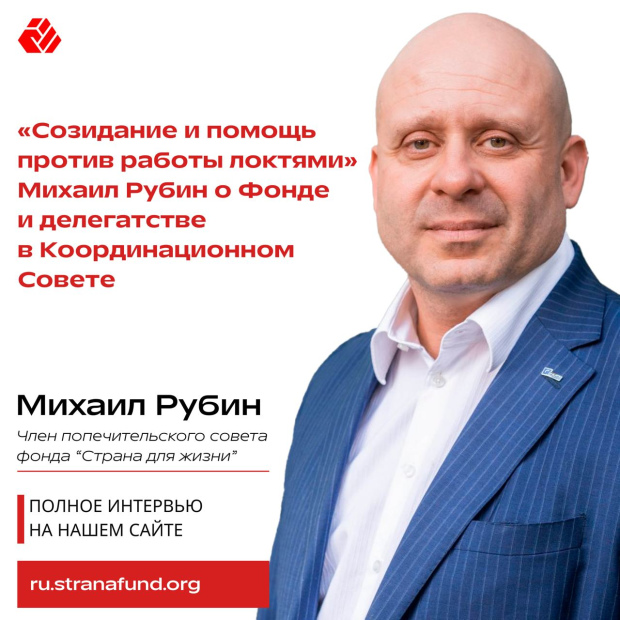Mikhail Rubin – caring Belarusian, businessman, Frankfurt municipal politician (FDP party), member of the board of trustees of the "A Country to Live in" Foundation, and former delegate of the Coordination Council from our Foundation. In an open interview, Mikhail talks about the "explosive mixture" in the Coordination Council 2.0, his goals in politics and the foundation.
"To secure a place in the CC"- You left the Coordination Council a month before the second convocation completed its powers.
- Yes, at that time, my like-minded people and I could not harm the work of the Coordination Council because it was practically not functioning.
We did it because we saw internal conflicts, confrontation, trolling in the Coordination Council on a large scale, and we wanted to draw attention to the problems of the second convocation. People who wanted and still want to keep their seats were mostly focused only on the upcoming elections and sometimes proposed unthinkable ideas for organizing new elections.
Our group, consisting of representatives of different factions (not only my "Responsible Partnership Faction"), decided to bring public attention to people who got into the Coordination Council by delegation due to the lack of direct democratic elections. We published a petition in which we formulated our concerns and demanded the self-dissolution of the Coordination Council. The petition was not properly perceived by colleagues, and our group decided to leave the Coordination Council.
Now, inside the CC, delegates actively discuss the extension of their powers for an indefinite period until the next elections because they did not have time to prepare for the next elections during their work.
-You also entered the CC through delegation.
-Yes, I was delegated by the "A Country to Live in" Foundation.
When they asked me why I was going there, why I needed the Coordination Council, I naively said that it was rather the Coordination Council that needed me. I went there with the best intentions. I already had a positive experience working in the board of trustees of "A Country to Live in," together with Artem Ledovsky. We worked first with the head of the Foundation, Masha Moroz, and now with Olga Zazulinskaya. We felt that we benefit the Fund thanks to our life, political (including parliamentary), and business experience. That's why I joined the CC.
Myself and those who signed the petition encountered something completely different in the CC than we expected. It was like pulling a blanket over oneself, internal strife, but not the construction of a proto-parliamentary structure or an open discussion platform.
But we never wanted to harm. In the current composition of the CC, there are enough delegates from human rights and other organizations who came for common goals. Such a structure is needed. Without it, we will not build a fully functioning democratic society. But it is not needed in the composition that turned out in the second convocation. The biggest danger we saw is that the same people will move to the third composition.
The CC as a "explosive mix": elbowing is at play- Who are these people, and what benefits do they gain from being members of the CC?
- You know, let's probably not use the word "benefits," but I'll cautiously try to describe.
The nine people who left are individuals who do not live off grants or income from public organizations; we all have our own lives. We have mostly been living outside Belarus for a long time, have already put down roots, stand firmly on our feet, and are established in some areas—either in business or something else. We came to the CC with a desire to help the homeland, to help the CC.
Our faction, the only one, categorically refused to apply for the budget for work because "he who pays the piper calls the tune."
The remaining members of the Coordination Council, with a small exception, are fully engaged in the work. These people came to the CC and brought their initiatives, structures that are funded by grants. They try to obtain additional funding, significance for their projects through their membership in the CC. It's not necessarily a bad thing. But it seems like there's too much elbowing for it. Their structures come first. And some members of the Coordination Council came to achieve their own next steps in social affirmation, to gain some political points, not for common goals.
We are sure: this is because of the lack of elections. The door was open, and those who prioritize their own goals came. This hinders direct communication, discussion. In real work, a toxic tone of communication, insults are evident. Because of this, we had to think several times before bringing up a topic, as insults were thrown in response. There was abuse, manipulation. It's not political work or creation.
At the same time, in this composition of the CC, there are professional politicians, people with experience in the protest movement, and just reasonable and active Belarusians. That's how this "volatile mix" turned out.
"Liberating political prisoners should be the work of professionals"-You fought against the Coordination Council organizing elections.
-Yes, and there is a partial victory. Many have noticed this illogical electoral system, and it has already been partially changed. A public committee and a conciliation commission have been created as the third body. There is a proposal from Speaker Andrey Yegorov to move away from the principles of delegation and the list of self-nominated candidates and conduct real democratic elections.
When people come to the CC after the election stage, engaging in political struggles with real political programs, the CC will become more professional.
-Will these elections take place among Belarusians abroad?
-Unfortunately, yes, we are in such a situation now. We are free, in a democratic space, and we must take responsibility for making decisions for Belarus. With this thought, I spoke to the members of the European Parliament in Brussels when participating in Kalinowski's conference.
If there are real technical possibilities for the safe participation of Belarusians inside the country, of course, no one will refuse them. It would be good to have a structure legitimized by Belarusians inside the country.
-You have already mentioned that you came to the CC from the "A Country to Live in" Foundation, but not to promote the organization's interests. What did you focus on?
-I mainly paid attention to organizing the work of our "Responsible Partnership Faction." And the work of our faction is precisely about all of us coming to the CC from different organizations but needing to work in partnership.
-Can the liberation of Belarusian political prisoners be achieved in a general partnership? This is the main question for the "A Country to Live in" Foundation and many Belarusians.
-And this is the most difficult question, to which there is no straightforward answer. And I have no answer on how to free political prisoners. Rather, there is an answer on how not to free them. Sanctions introduced for other reasons should not be lifted. On the contrary, new sanctions for crimes against humanity should be imposed, and they should only be considered for removal in exchange for the release of people. I emphasize that professionals should be dealing specifically with the issue of freeing detainees. And I very much hope that a group of specialists will be formed soon. Olga Zazulinskaya, the head of the "A Country to Live in" Foundation, has already proposed this initiative at a conference in Warsaw.
I joined the "A Country to Live in" Foundation from the first moment of its founding, together with Artem Ledovsky, thinking specifically about political prisoners and to help build this structure with effective technological processes based on the processes that businesses use in everyday life (we paid particular attention to protecting personal data and processing applications). This is a positive experience because all the work of the foundation and financial audits were open to us, members of the board of trustees. And the foundation has always focused on its main task - helping political prisoners and members of their families. As for the release, it is already the political work of all of us.


 Continue
Continue
